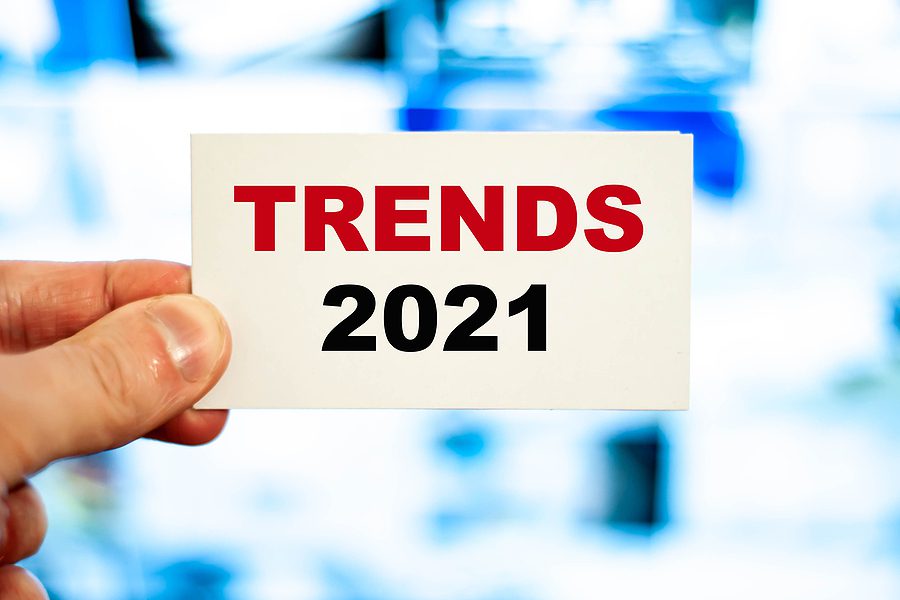
For those of us deeply invested in health IT, there are opportunities for innovation like never before. And, there’s no time like the present to dig in and deliver what the world needs from the technology and systems backing the front lines of healthcare.
“Looking forward, we see a tremendous need for health IT to advance and deliver like never before,” shares Tom Liddell, CEO at Harmony Healthcare IT. “We are digging in with expanded product offerings, and continuing to tackle the industry’s most complex data management projects to assist our provider partners in being even more nimble and prepared for the seamless flow of health information that will drive success in 2021 and beyond.”
Liddell believes 2021 will realize five trends in healthcare IT:
-
- Healthcare Industry will Become More Vigilant with Security – Healthcare has taken many security blows in recent years and, unfortunately, 2021 is expected to be more of the same – if not worse. Cybersecurity Ventures predicts that in 2021, healthcare will suffer two to three more cyberattacks than the average for other industries. IBM reports that healthcare incurs the highest breach cost of any industry: $7.13 million per incidence in 2020, up 10% over 2019. We will see more hospitals, health systems and health IT vendors seek a HITRUST CSF® certification to establish industry-standard controls that protect them from threats. We will also see an influx of provider organizations consolidating silos of data stored from outdated systems that offer some of the easiest entry points for hackers. Active archiving with products like HealthData Archiver® will be a defensive move made by healthcare organizations to protect its EHR, ERP and HR data.
-
- Cures Act will Promote Interoperability to Consumers – Access to their own health information is quickly becoming an expectation as 67% of consumers in a recent survey said they would consider changing their doctor or hospital providers in the coming year after they discovered their health record was not shareable, available or was blocked. The upcoming enforcement of the 21st Century Cures Act – which promotes expanded patient access to their electronic information – will start to see real implementation in 2021. As healthcare providers continue to evolve how health and business data is shared among typical industry stakeholders, patients may take a front seat, receiving their medical records on smart phone apps. To meet these requests with the full patient narrative (including records from the active EHR as well as from archives), it will be important to have a data management plan that consolidates and stores disparate, legacy, clinical data sets and enables them for sharing (e.g., FHIR transactions). Industry experts suggest healthcare organizations look at meeting the finalized rules sooner rather than later and as an opportunity for business success, citing that adopting the rules as soon as possible represents a huge business opportunity.
-
- Cloud and Hybrid Cloud will Gain Adoption – With 30% of the world’s stored data being health-related and providers focusing even more on interoperability and care coordination, cloud-based hosting contributes to secure and efficient communication among patients, physicians, hospitals and payers. Healthcare provider IT teams who haven’t already migrated their data storage to the cloud likely will take another look at the benefits in the coming year, which include: cost savings, increased security, reduced downtime, improved connectivity/accessibility and faster deployment. To help with these discussions, we’ve developed five questions to answer when evaluating off-site hosted vs. on-premises for EMR archiving.
-
- Hospital CIOs will Strive to Contain Costs – IT budgets, like most areas in healthcare, were impacted and continue to be affected by COVID-19. Making the most sound and efficient business decisions will continue throughout 2021. One area that is ripe for cost savings is to consolidate the IT portfolio and archive legacy data according to retention guidelines. To help, we’ve developed a resource: Five Ways to Find Cost Savings with Legacy Data Management and also suggestions on how to lower or eliminate costs from software, hardware, training, legal liability, cybersecurity risk and lost opportunities. According to KLAS Research, 85% of healthcare providers report positive financial impacts when they retired legacy IT systems and opted for health data archiving.
- Lifecycle Data Management will Take an Important Seat at the Table – While data management isn’t new, including the complete data lifecycle in long-term plans is a growing trend among healthcare governance teams. Governance teams are taking a more systematic approach to application rationalization and portfolio management to avoid unnecessary risks and to contain costs. As acquisitions continue to merge multiple EHR systems, a solid plan for overall legacy system and data management with buy-in from a cross functional governance team becomes valuable on many levels.
While 2020 didn’t turn out as anyone predicted, 2021 will demand a vigilant focus to protect ePHI while also storing it in the cloud and sharing it.
Health IT is expected to show growth over the coming years. US expenditures on EHRs are forecast to total $19.9 billion in 2024, an increase of about $5 billion from 2019 figures. As regulations and demands continue to increase for what the EHR is expected to accomplish, research suggests that EHR replacements will continue to be commonplace. That means that a solid record retention strategy and active archive plan will be needed.
Ranked #1 in the category of data archiving by KLAS Research and with successful experience with more than 500 different EHR systems, Harmony Healthcare IT team members stand ready to roll up their sleeves and help healthcare IT teams work through their health data management projects.
Reach out if you’d like to discuss how our team could help you achieve your 2021 goals.






